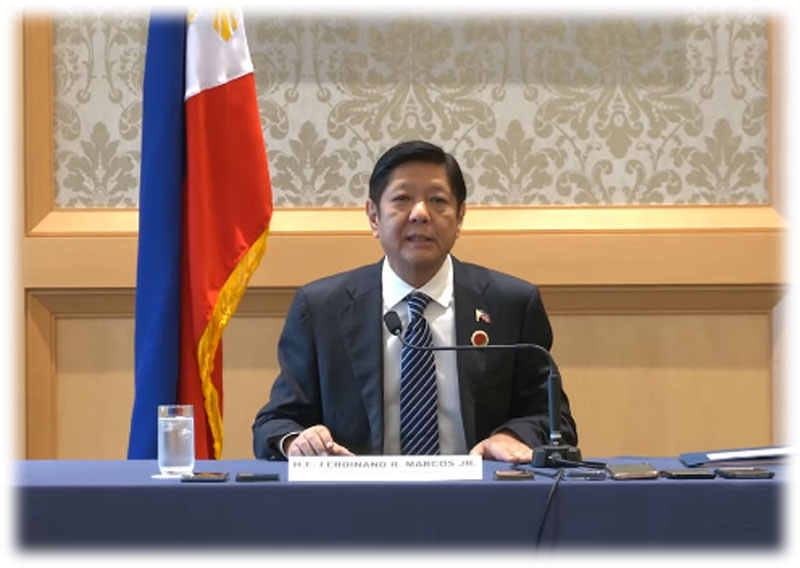President Ferdinand R. Marcos Jr. says the country ‘paradigm shift’ to deal with China on West Philippine Sea issue

President Ferdinand R. Marcos Jr. said that the Philippines is eyeing a “paradigm shift” as the “traditional methods of diplomacy” of the Philippine government is continuously being disregarded by China amid its recent aggression and harassment in the West Philippine Sea (WPS).
In an interview with Japanese media on Saturday, President Marcos emphasized that it is about time for the Philippine government to come up with a new way on how to deal with China as it appeared that the current efforts are showing “very little progress.”
Marcos described the current diplomatic efforts with China as heading “in a poor direction.”
“Well, to this point, we have resorted to the traditional methods of diplomacy where, should there be an incident, we send note verbal. Our embassy will send a démarche to the Foreign Affairs (Ministry) office in Beijing, but we have been doing this for many years now, with very little progress,” Marcos said.
“We have to do something what we have not done before. We have to come up with a new concept, a new principle, a new idea so that we move, as I say, we move the needle the other way. It’s going up, let’s move the needle back, so that paradigm shift is something that we have to formulate,” he added.
President Marcos pointed out that the situation in the WPS will not improve if the Philippines will continue to deal with China the same way it is dealing with the current situation in the waters.
The Philippines has taken three legal steps such as filing a diplomatic protest with the Chinese Ministry of Foreign Affairs, summoning Chinese Ambassador to the Philippines Huang Xilian and making a “demarche to the Chinese Ministry of Foreign Affairs officials” to call out the China Coast Guard (CCG).
The Chinese naval assets water cannoned the vessels of the Philippine Coast Guard (PCG) during its recent resupply mission to BRP Sierra Madre in Ayungin Shoal.
President Marcos said that the Philippines will continue talking to its partners in the Indo-Pacific region and to “the rest of the world,” if necessary to de-escalate the tension in the WPS.
“We do not want to go the point where there are incidents that might cause an actual violent conflict. Maybe from a mistake or a misunderstanding and these things happen all the time,” President Marcos said.
“And so, we have, in my review, it’s time that the countries that feel that they have an involvement in this situation, we have to come up with a paradigm shift,” the President added.
Asked what specific paradigm shift that the Philippine government is thinking about, President Marcos said there are a lot of ideas but said the government will continue talking to its partners and come up with a joint position, stating their responsibilities as far as the WPS is concerned.
“We have to bring all of those ideas together and to change the direction that these incidents have taken us. We have to stop going that way. We’ve gone down the wrong road. We have to disengage and find ourselves a more peaceful road to go down,” Marcos said.
“We have, as I have said, the consensus that we must continue to promote peace, but we have to decide amongst ourselves what part each of us plays and what we can play, what we are willing to play,” he added.
“So, and put that – put all of those elements together so that we have a, so that we have a good plan that will take us as I’ve said, down, not the road to conflict, but down the road to peace.”
Marcos said that the Philippines has to move quickly in dealing with China in the WPS as it is already affecting the livelihood of the Filipino fishermen.
President Marcos was in Japan to attend the 50th anniversary of the Association of Southeast Asian Nations (ASEAN)-Japan Relations.



